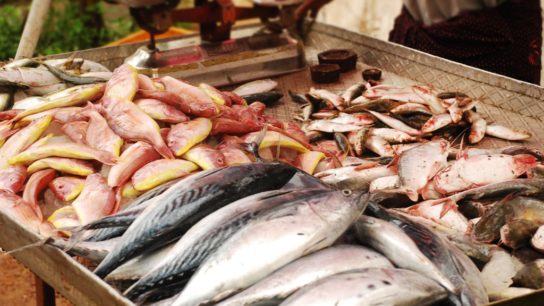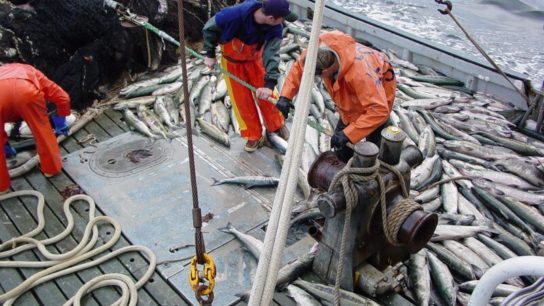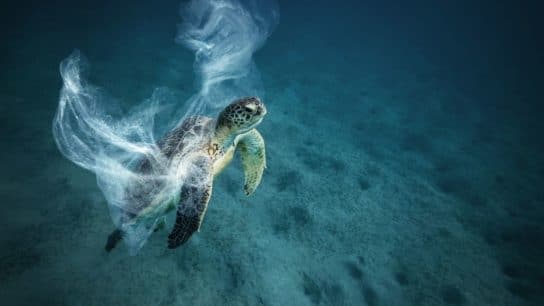Researchers in Israel have developed an environmentally friendly, degradable plastic – like polymer derived from marine organisms that feed on seaweed, which is completely biodegradable, as well as recyclable.
—
It was the successful outcome of a collaboration between Dr Alexander Golberg and Professor Michael Gozin of Tel Aviv University. Their study was published in the journal Bioresource Technology this month (January 2019).
This material may one day free the world of its worst pollutant. Plastic accounts for up to 90% of all the pollutants in our oceans, according to EcoWatch – yet there are few comparable, environmentally friendly alternatives to the material.
“Plastics take hundreds of years to decay. So bottles, packaging and bags create plastic ‘continents’ in the oceans, endangering animals and polluting the environment,” says Dr Golberg. “Plastic is also produced from petroleum products, which has an industrial process that releases chemical contaminants as a by-product.”
You might also like: How Wax Worms Can Be Used to Fight Plastic Waste
Conventional plastic is in fact largely derived from non-renewable fossil fuels like natural gas and coal that are resistant to natural degradation. Over time, they enter into the animal and human food chain. Hence, efforts are focussed on finding substitute primary materials that can decay naturally without altering the equilibrium of ecosystems when discarded.
What is Bioplastic?
Researchers settled their attention on seaweed-feeding microorganisms and produced a biodegradable polymer named polyhydroxyalkanoate (PHA), which completely breaks down into organic waste.
“A partial solution to the plastic epidemic are bioplastics, which don’t use petroleum and degrade quickly. But bioplastics also have an environmental price. To grow the plants or the bacteria to make the plastic requires fertile soil and freshwater, which many countries, including Israel, don’t have.”
“Our raw material was multicellular seaweed, cultivated in the sea” Dr Golberg continues. “These algae were eaten by single-celled microorganisms, which also grow in very salty water and produce a polymer that can be used to make bioplastic.”
“There are already factories that produce this type of bioplastic in commercial quantities, but they use plants that require agricultural land and fresh water. The process we propose will enable countries with a shortage of fresh water, such as Israel, China and India, to switch from petroleum-derived plastics to biodegradable plastics.”
The new study could transform global efforts to clean the oceans without affecting arable land and without using fresh water, always according to Dr Goldberg.
“Plastic from fossil sources is one of the most polluting factors in the oceans,” he says. “We have proved it is possible to produce bioplastic completely based on marine resources in a process that is friendly both to the environment and to its residents.
We are now conducting basic research to find the best bacteria and algae that would be most suitable for producing polymers for bioplastics with different properties” he concludes.
Innovations- such as this biodegradable plastic polymer using marine organisms- should be delved into further to use the power of nature to benefit the planet.
References:
Golberg, Alexander; Gozin, Michael; Fadeev, Ludmila; Greiserman, Semion; Gnaim, Rima; Ghosh, Supratim. “Macroalgan biomass subcritical hydrolysates for the production of polyhydroxyalkanoate (PHA) by Haloferax mediterranei”, Tel Aviv University. Bioresource Technology, Elsevier. January 2019.
Featured image by David Martin


















